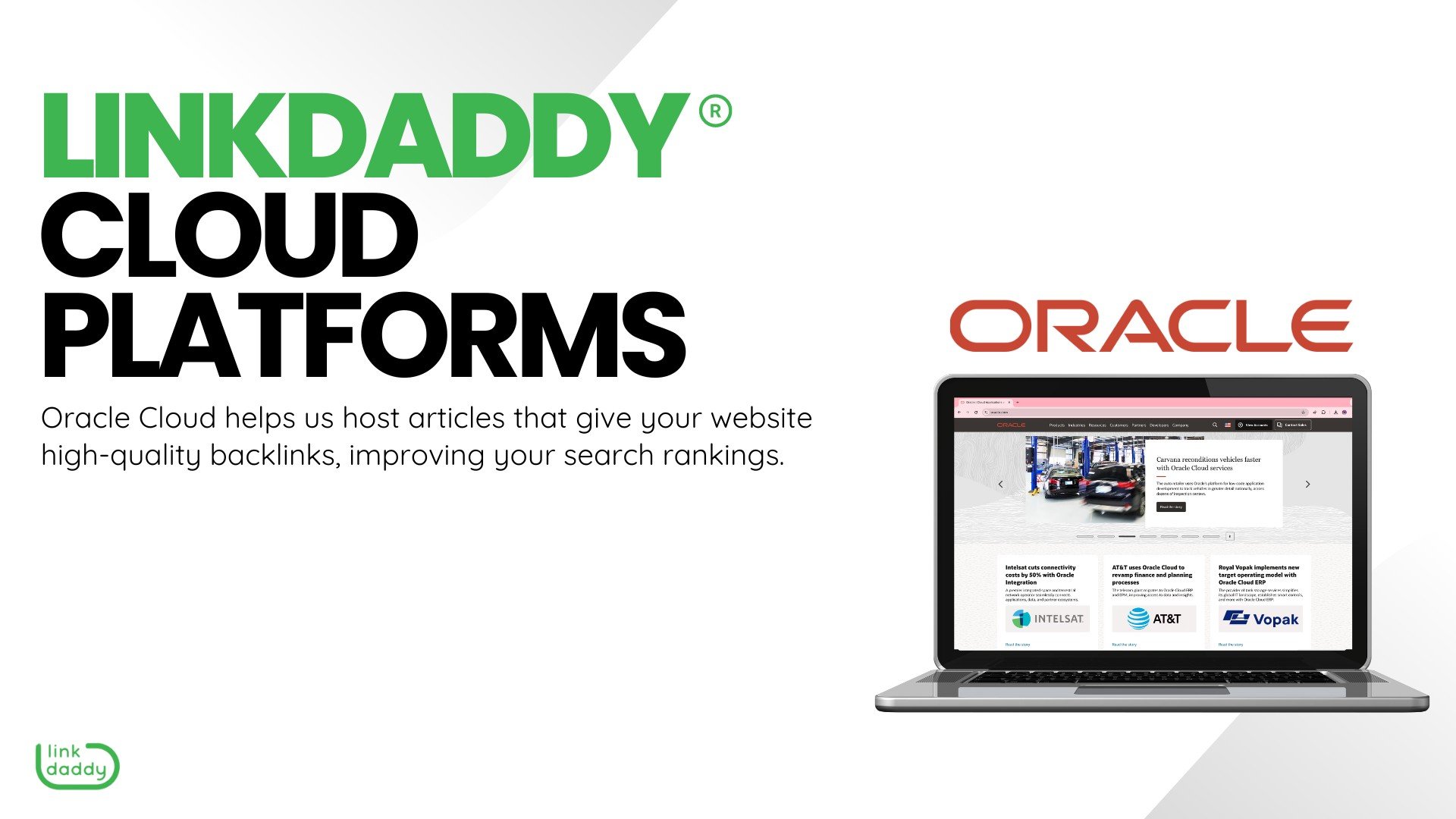Discover LinkDaddy Cloud Services: Solutions for Your Company Demands
Discover LinkDaddy Cloud Services: Solutions for Your Company Demands
Blog Article
Comprehending the Various Types of Cloud Solutions and Their Usages
From Infrastructure as a Solution (IaaS) to Software Program as a Solution (SaaS), each kind of cloud solution offers a special function and supplies distinctive benefits. By discovering the nuanced capabilities and applications of each cloud solution, one can navigate the intricacies of cloud computing with precision and foresight.
Infrastructure as a Service (IaaS)
Framework as a Solution (IaaS) offers users with virtualized computing sources online on a pay-as-you-go basis. This cloud computer version delivers crucial IT facilities such as online devices, storage, and networking without the need for companies to spend in and handle physical servers and data facilities. With IaaS, individuals can scale resources up or down based on their demands, providing flexibility and cost-efficiency.
Among the crucial benefits of IaaS is its capability to swiftly arrangement and deploy infrastructure parts, allowing companies to respond quickly to changing needs and market conditions. By outsourcing framework administration to the company, companies can concentrate more on their core organization tasks instead of taking care of the complexities of equipment maintenance and upgrades.
Moreover, IaaS uses a high level of dependability and safety and security, with carriers generally offering durable information backup, catastrophe recovery, and cybersecurity procedures. This helps make certain that crucial business procedures continue to be undisturbed and information remains shielded against potential risks. Cloud Services. On the whole, Infrastructure as a Service improves IT procedures, enhances scalability, and minimizes capital investment for services of all dimensions
Platform as a Service (PaaS)
Building upon the foundation of Framework as a Solution (IaaS), System as a Service (PaaS) offers a detailed atmosphere for programmers to develop, release, and take care of applications without the intricacies of underlying framework monitoring. PaaS gives a system with devices and solutions that simplify the growth procedure, permitting programmers to concentrate on composing code and building applications as opposed to taking care of facilities issues.

Software as a Solution (SaaS)
Software Application as a Service (SaaS) transforms the means services access and use software application applications by supplying them on a registration basis through cloud providers. This cloud computing model eliminates the demand for organizations to preserve and install software application on specific devices, as every little thing is held and taken care of centrally in the cloud.
SaaS offers a cost-effective service for organizations as they only spend for the software application they make use of without the included expenses of hardware upkeep or software program updates. It additionally provides scalability, enabling firms to easily adjust their software application needs based on their needs.
Additionally, SaaS applications can be accessed from any kind of tool with an internet connection, advertising cooperation and flexibility amongst remote teams. Safety and security is a top priority in SaaS, with carriers implementing robust steps to shield data saved in the cloud.
Popular examples of SaaS include client partnership administration (CRM) software like Salesforce, productivity tools like Microsoft Office 365, and collaboration platforms like Google Workspace. SaaS remains to gain traction in business world due to its scalability, benefit, and cost-efficiency.
Feature as a Service (FaaS)
With the evolution of cloud services like Software as a Solution (SaaS) improving software application shipment, Function as a Service (FaaS) stands for a standard shift in how code is carried out in a serverless setting. FaaS permits designers to write and execute specific features or pieces of code in action to certain events without the you could try these out need to take care of the framework. This serverless computing model enables programmers to focus entirely on writing code to carry out particular performances, without concerning themselves with the underlying framework or web server monitoring.
Features are implemented in stateless containers that are rotated up and down as required, making sure optimum resource use and cost-effectiveness. By abstracting the facilities layer, FaaS simplifies advancement, speeds up time to market, and enhances total agility in releasing cloud-native applications.
Storage as a Service (STaaS)
A fundamental element in cloud computer, Storage space as a Service (STaaS) supplies customers with a effective and scalable remedy for managing data storage space needs. STaaS allows organizations to keep and get data from remote servers by means of the net, eliminating the need for on-premises hardware. This service provides adaptability by enabling individuals to pay just for the storage space they make use of, making it an economical read this remedy for organizations of all sizes.

STaaS is especially beneficial for businesses with fluctuating storage space needs, as it offers a dependable and secure storage option without the need for significant ahead of time investments. By leveraging STaaS, organizations can simplify their information management processes, boost availability, and boost data security in an affordable manner.

Final Thought
In conclusion, comprehending the various kinds of cloud services and their uses is necessary for businesses and people looking to leverage the benefits of cloud computing. By using the appropriate cloud solution, organizations Extra resources can enhance their efficiency, scalability, and versatility in handling their IT facilities and applications.
From Framework as a Solution (IaaS) to Software Program as a Solution (SaaS), each kind of cloud service serves a special function and supplies distinctive benefits. linkdaddy cloud services. By exploring the nuanced functionalities and applications of each cloud solution, one can browse the intricacies of cloud computing with precision and foresight
With the development of cloud services like Software as a Solution (SaaS) streamlining software program distribution, Function as a Solution (FaaS) stands for a standard change in how code is performed in a serverless atmosphere.In conclusion, understanding the different kinds of cloud solutions and their uses is vital for companies and individuals looking to utilize the advantages of cloud computing. By utilizing the right cloud service, companies can improve their efficiency, scalability, and versatility in managing their IT infrastructure and applications.
Report this page